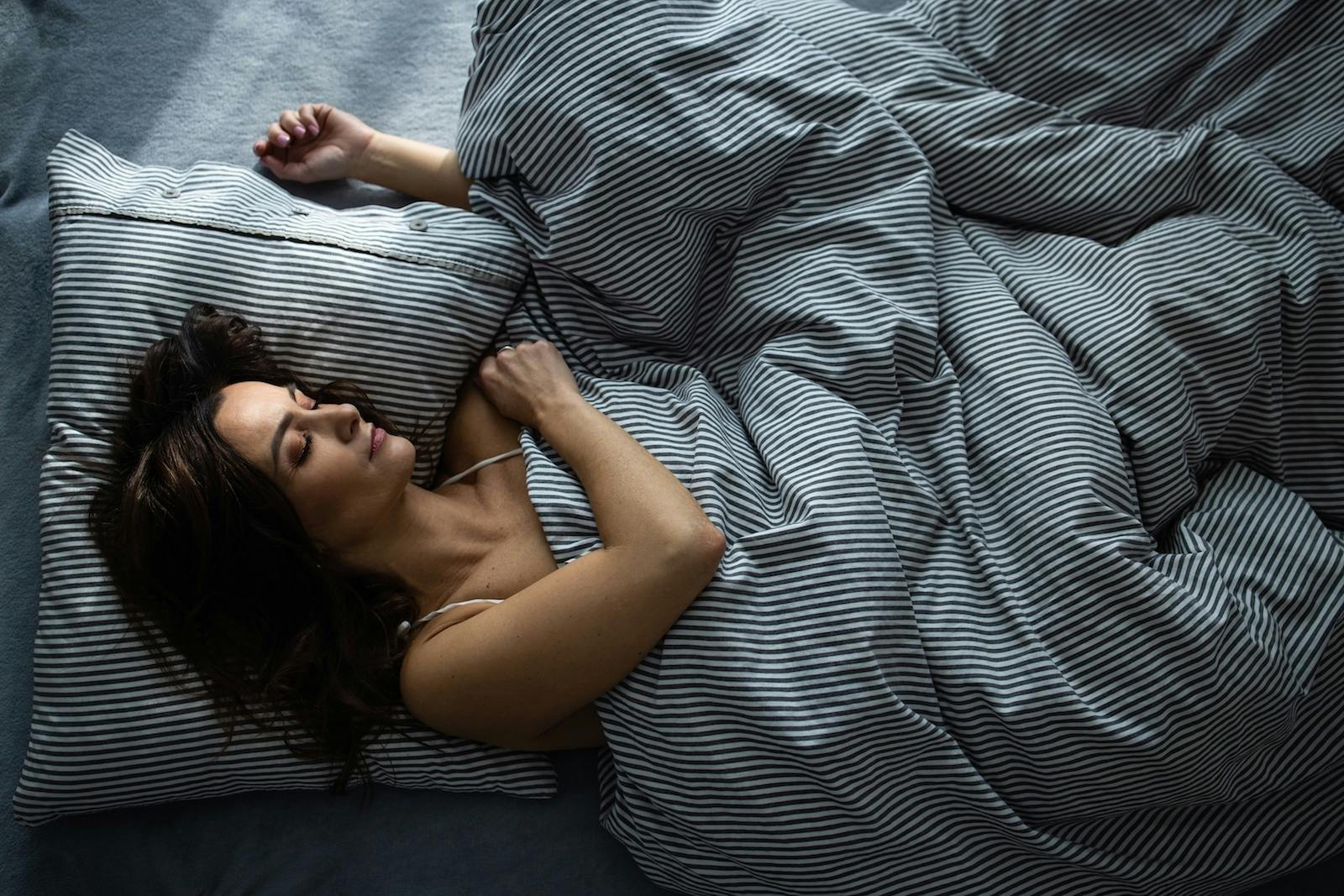Why Sleep Is So Important, And Some Tips To Help You Get More Of It

Over the next month we’re teaming up with HBF for a Connect On Health series, offering some actionable and achievable goals on getting healthier – head to HBF’s Health Blog for more useful tips towards a happier and healthier you in 2022 and beyond.
A couple of weeks back we took a look at some ways to try and help improve our mental health in 2022 and beyond, and one of the biggest takeaways we had was the importance of sleep.
Related: Four Achievable Ways to Help Improve Your Mental Health in 2022
Living and working in 2022 means it can often feel like we’re on the go 24/7, being on the “grind” is celebrated and a sign you’re “kicking goals”, meaning proper sleep and rest often take a backseat. We’re here today to tell you the refrain “I’ll sleep when I’m dead” isn’t cool anymore, it’s a sign you’re on your way to potential burnout, and it’s time to give sleep the credence it deserves…
Why is sleep so important?
Next time you don’t get a good night’s sleep, try and examine how your brain is functioning. It’s pretty obvious to anyone who hasn’t had enough sleep that you’ll feel tired the next day, perhaps you’ll be in a bad mood, and struggling to focus. Did you also know that poor sleep has been linked to health conditions like diabetes, high blood pressure and heart disease?
Sleep is an important biological function, allowing the body to physically recover, support brain development, cardiac function and metabolism, along with improving your ability to learn and remember things, along with your general mental health. Essentially, sleep helps your mind and body function properly, helps keep the immune system and blood vessels healthy and can even help control appetite and weight.
So, we’ve established sleep as a vital element in your day-to-day life, let’s look at some achievable ways you can improve it:
Make the bedroom a proper sleeping zone
Establishing a regular time for going to bed and getting up in the morning helps your body establish a routine – you’re basically training it to want sleep at the same time each night. You can help this by making the room itself a more comfortable zone for sleep – keep lights dim/off, remove screens and distracting lights. You want the bedroom to feel like the place where you sleep and that’s it.
Expert tips from HBF: 10 Ways To Get A Better Night’s Sleep
Switch off from the digital devices
Arguably the most important part of making your bed a sleep-only zone is limiting your access to devices like your phone – for a plethora of reasons. The one you may hear about the most is your phone/laptop/TV’s blue light restricts the release of melatonin AKA the hormone that controls your sleep-wake cycle. Did you also know that using your devices may have an impact on your alertness at night (increased) and the following morning (decreased)? You stay awake longer stressing about something you read on social media, you wake up more tired and less alert the following morning.
The Sleep Foundation recommends switching devices off at least 30 minutes before you plan on going to sleep to help with the above issues. One simple way to lessen the availability of your phone at these crucial times is charging it away from your bed (preferably in a different room), and investing in an alarm clock to wake you up instead.
Exercise, sunlight and fresh air are your friend
It’s a pretty standard line for many health-related issues, but getting outside, doing some exercise and getting plenty of fresh air is great for sleep! According to the Sleep Foundation: “The relationship between exercise and sleep has been extensively investigated over the years. Previous studies have noted that proper exercise can alleviate sleep-related problems and help you get an adequate amount of rest. Recent research also suggests insufficient or poor-quality sleep can lead to lower levels of physical activity the following day.”
Expert tips from HBF: 8 Great Ways Exercise Can Improve Your Health
Avoid caffeine, alcohol and cigarettes close to bedtime
Everyone knows caffeine is a stimulant, but did you know cigarettes are too? And while alcohol is a depressant and may make you feel tired initially it may also end up causing the sleep itself to be far more disrupted. And while we all love a coffee or two in the morning to get us going, anything after midday could linger in your system until much later in the night.
Expert tips from HBF: 7 Good Reasons To Drink Less Alcohol
What, when, and how you eat can impact your sleep
A healthy balanced diet is important for many aspects of our physical health, including getting a good night’s sleep. Achieving a healthy diet can help keep you energised throughout the day and sleep better at night. Eating foods that can upset your stomach or produce digestive issues before bed can make it difficult to have a restful sleep. The timing of your last meal before bed can make a difference as well; the Sleep Health Foundation recommends around 2-3 hours between your last meal and heading to bed, but also don’t go to bed hungry, a small healthy snack just before bed should be fine.
More expert help from HBF:
5 tips to look after your mental health
Understanding stress – and how to manage it
What to expect when you see a psychologist
Why do you need health insurance in your 20’s
Why do you need health insurance in your 30’s
Head to the HBF Website for more information on your insurance options.